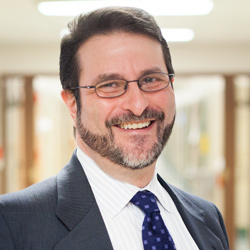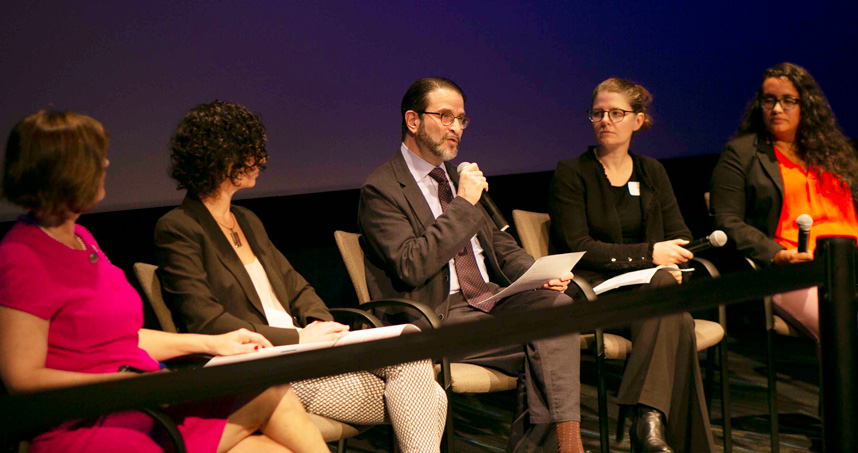Urgent Call for Climate Adaptation in the Great Lakes Region
Effects pose a threat to the Midwest
Extreme weather events are likely to increase in the Midwest, stressing water systems and impacting industry, agriculture, wildlife, and people, Northwestern Engineering researcher Aaron Packman told the US House Select Committee on the Climate Crisis last week in Chicago.
The effects pose a threat to the health and prosperity of the Great Lakes region, and a key priority of Congress should be focusing on making data about the coming impact on lives and industry more widely available to all, he said.
“We have known for more than 10 years that climate change is increasing the intensity of extreme weather,” said Packman, professor of civil and environmental engineering in the McCormick School of Engineering and director of the Center for Water Research at Northwestern University. “This means more intense storms and rainfall concentrated into fewer events, contributing to greater flooding and drought.”
 Packman said that although the Great Lakes region is known for temperate summers, much hotter and longer summers are likely in the near future, increasing the likelihood of heat waves – the largest weather killers of people in the Midwest.
Packman said that although the Great Lakes region is known for temperate summers, much hotter and longer summers are likely in the near future, increasing the likelihood of heat waves – the largest weather killers of people in the Midwest.
The Great Lakes contain about 18 percent of the world’s total freshwater and about 90 percent of the United States’s total freshwater, according to the US Census Bureau. It’s also home to 52 million people, according to an analysis by the Urban Institute. One of the world’s largest regional economies, the Great Lakes region has a $7 billion fishing industry and a $16 billion tourism industry.
The roundtable discussion was hosted by Select Committee Chairwoman Rep. Kathy Castor (D-FL) and Committee Member Rep. Sean Casten (D-IL) at the Adler Planetarium on August 14. The committee is charged with delivering climate policy recommendations to Congress.
“We are in search for solutions that work for everybody,” Castor said. “We don’t have time to waste. All of the scientists tell us that in order to avoid the worst impacts of rising temperatures, rising sea levels, and extreme weather events, we’ve got to act with urgency.”
In the context of what the federal government and policymakers can achieve, Packman proposes focusing on improving access to information and making data more widely available.
“The two priorities in my view are information and use of information,” he said.
Packman said technology companies are making major investments in municipal data, trying to become information providers for cities and other local governments. “We should ensure that these investments yield public data,” he said.
“There needs to be an investment in accumulation of data and public access to the data so that, first of all, decision making is transparent. Second, communities can understand and implement their own solutions. And then third, we can identify emerging challenges and address them effectively.” Packman said.
Packman’s current project, SAVEUR (Systems Approaches for Vulnerable Evaluation and Urban Resilience), aims to predict extreme weather events with more accuracy as well as help reduce impacts at the neighborhood level.
SAVEUR combines natural science, social science, data science, and engineering to predict weather events such as heat waves, air quality, and flooding, while assessing vulnerabilities within neighborhoods and cities – and proposing sustainable, adaptive infrastructure changes. The City of Chicago, Metropolitan Water Reclamation District of Greater Chicago (MWRD), The Nature Conservancy, and Chicago Park District are all partners in this work.
The panel also included Elena Grossman of the University of Illinois at Chicago’s School of Public Health and Building Resilience Against Climate Effects (BRACE)-Illinois; Karen Weigert, currently of Slipstream and former Chief Sustainability Officer of the City of Chicago; Juliana Pino from the Little Village Environmental Justice Organization; and Margaret Garascia of Elevate Energy.
